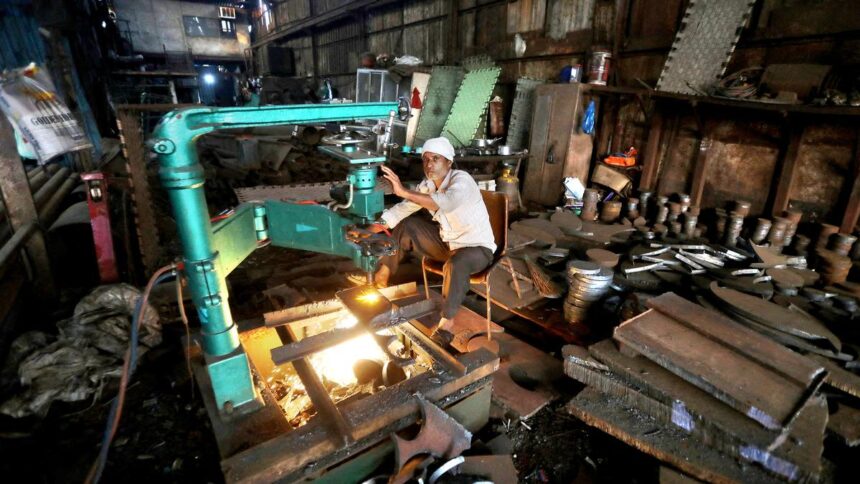While the goods and services tax (GST) rate cuts authorised by the GST Council on Wednesday (September 3, 2025) night brought cheer to the auto, insurance, consumer appliances, pharmaceuticals, and renewable energy sectors, among others, some of that was tinged with reproach. Some other industries are outright upset with the tax changes.
The stock market, too, reflected this mixed response on Thursday (September 4, 2025), initially reacting positively but ending the day nearly flat, with the Sensex up just 0.2% from the previous day.

The airlines slammed the higher GST on non-economy seats. Vegetable oil producers called for the resolution of the inverted duty structure on edible oils, which means that the GST rate on raw materials in their industry is higher than the rate on the finished product. This mismatch was something that the Council corrected for the fertiliser and man-made textiles industries.
The increase in the GST rate for labour charges, from 12% to 18%, has also led to some resistance, with small entrepreneurs saying that they would be hit hard by the change.
Mixed response
While the textile industry has welcomed the revision of GST rates for both manmade fibre and cotton sectors, it has also expressed its disappointment over the 18% duty for garments priced above ₹2,500 each.
The Cloth Manufacturers Association of India pointed out that such garments are also consumed in large numbers by the common man, especially in the form of woollens, wedding wear, traditional clothing, handlooms, and embroidered clothes. Charging 18% GST on these will make them significantly more costly, it said.
This nuanced cheer can be seen in the auto sector as well. Auto manufacturers have welcomed the rate rationalisation for the sector, along with the removal of the GST Compensation Cess applicable on cars.
As per the new rates, entry-level and mid-segment cars priced up to ₹14 lakh will see a tax reduction of up to 13% points, while high-end cars with engines above 1200 cc too are set to see an 8 to 10% point cut in their tax rate.
Auto dealers, however, have voiced some worries about consumers postponing their purchases until September 22, when the new rates come into force, and have called for greater clarity on what happens to the cess on vehicles they have already bought from manufacturers but not yet sold to customers.
Similarly, analysts projected a mixed impact on the insurance sector. From the customers’ point of view, the exemption of personal life and health insurance from GST will increase insurance penetration. On the other hand, they say that the removal of input tax credits might increase costs for insurers, thereby eating into their profits.
Overwhelming cheer
The healthcare industry’s reaction has been more unequivocally positive, saying that the decision to reduce GST from 12% to 5% on a wide range of medical products, including diagnostic kits, reagents, surgical apparatus and other critical medtech products, will directly benefit patients by lowering treatment costs, improving affordability, and expanding access to essential medical technologies.

The renewable energy sector, too, has praised the decision to reduce taxes on renewable energy components from 12% to 5% as a progressive step towards accelerating India’s clean energy transition by lowering costs for critical technologies such as solar cells and other renewable energy devices.
Consumer appliance makers were also upbeat about the GST rate cuts, saying they would boost demand, especially in the run-up to the festive season.
(With inputs from Sharad Raghavan, Jagriti Chandra, M. Soundariya Preetha, Lalatendu Mishra, Saptaparno Ghosh, and Bindu Shajan Perappadan)
Published – September 04, 2025 11:06 pm IST




















